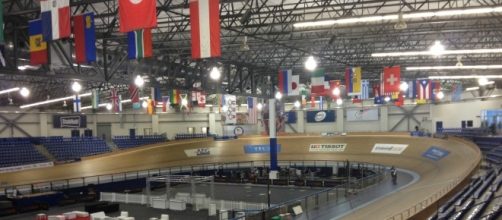Track cycling was among the nine sports included when the modern Summer Olympics debuted in 1896 in Greece. The sport, which has fluctuated in popularity, now has multiple races for men and women all held on a banked track. It's a fast blur of fast-twitch muscles.
It's also not too dissimilar from NASCAR style auto racing on bikes. The strategy in some races is quite similar with riders' abilities to use drafting and split-second decision-making paramount to success.
When the 2016 Summer Olympics are held in Rio de Janeiro, Brazil from August 5 to 21, five men's and women's events will be contested.
It's often the only time the American public witnesses track cycling, although there are about 30 track cycling venues in the United States.
New Cycling League
The only indoor track or velodrome is the VELO Sports Center in Carson, Calif., where a new format for track cycling will debut March 18-19 with the unveiling of the World Cycling League.
It will feature six teams of seven riders, including four U.S.-based teams as well as a squad from Ireland and Mexico competing on a track that banks to a maximum of 45 degrees.
Dave Chauner, a former two-time cycling Olympian, is the CEO of the World Cycling League. With his debut event, Chauner, whose 40-year history in the sport also includes vast experience as an author, broadcaster and event producer, hopes to bring the discipline to the public and to network television with eight events beginning later this year.
Six, seven-cyclist teams
Like road cycling, track cycling's hub is in Europe. France, Germany, Belgium and Great Britain have maintained rich traditions. The sport's World Championships have only twice been held the United States — in 1986 in Colorado Springs, Colo., and in Carson, Calif., in 2005. The latter is the only indoor facility in the United States.
The track, located on the fringe of the campus of California State University, Dominguez Hill, is also where Chauner hopes to debut the full schedule of events. With this weekend's launch as the impetus, he hopes to attract major advertisers.
He also hopes to lure a television network that believes the concept of athleticism and strategy on two wheels and at high speeds will appeal to a substantial national audience.

